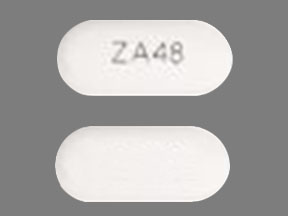
Depakote ER Coupons & Savings Card – Discount Prices from $14.87
Brand for: Divalproex er
My prescription
Edit
500MG, Divalproex ER (60 Tablet Extended Release 24 Hours)
Select pharmacy

CVS
$23.76
COUPON PRICE
Walmart
$14.87
COUPON PRICE
Walgreens
$15.85
COUPON PRICE
Albertsons
$25.08
COUPON PRICEDepakote ER savings card
Show this card to your pharmacist
Walmart
$14.87
BIN
ID
PCN
GRP
019876
LH6C043D7B
CHIPPO
LHX
Powered by
Price history for Depakote ER (brand) & Divalproex ER (generic)
60 Tablet Extended Release 24 Hours, 500MG
Average retail price for Depakote ER
Average retail price for Divalproex ER
Average SaveHealth price for Divalproex ER
Our price history data is based on aggregated prescription data collected from participating pharmacies in America. Our prescription data updates daily to reflect the latest price changes. If you notice a missing data point, it means there wasn't sufficient data available to generate a monetary value for that date.
Over the last 12 months, the average discount price of Depakote ER is $26.90 using the SaveHealth savings card. That's an average savings of 93.40% on Depakote ER with our discount card.
*Retail prices are based on pharmacy claims data, and may not be accurate when we don't have enough claims.
Depakote ER (Divalproex ER) dosage forms
Dosage Quantity Price from Per unit 250MG 1 Tablet Extended Release 24 Hour $2.67 $2.67 250MG 30 Tablet Extended Release 24 Hours $7.71 $0.26 250MG 50 Tablet Extended Release 24 Hours $11.18 $0.22 250MG 60 Tablet Extended Release 24 Hours $12.91 $0.21 250MG 80 Tablet Extended Release 24 Hours $19.72 $0.25 250MG 90 Tablet Extended Release 24 Hours $24.62 $0.27 250MG 100 Tablet Extended Release 24 Hours $26.36 $0.26 250MG 150 Tablet Extended Release 24 Hours $34.83 $0.23 250MG 180 Tablet Extended Release 24 Hours $36.81 $0.20 250MG 270 Tablet Extended Release 24 Hours $42.07 $0.16
| Dosage | Quantity | Price from | Per unit |
|---|---|---|---|
| 250MG | 1 Tablet Extended Release 24 Hour | $2.67 | $2.67 |
| 250MG | 30 Tablet Extended Release 24 Hours | $7.71 | $0.26 |
| 250MG | 50 Tablet Extended Release 24 Hours | $11.18 | $0.22 |
| 250MG | 60 Tablet Extended Release 24 Hours | $12.91 | $0.21 |
| 250MG | 80 Tablet Extended Release 24 Hours | $19.72 | $0.25 |
| 250MG | 90 Tablet Extended Release 24 Hours | $24.62 | $0.27 |
| 250MG | 100 Tablet Extended Release 24 Hours | $26.36 | $0.26 |
| 250MG | 150 Tablet Extended Release 24 Hours | $34.83 | $0.23 |
| 250MG | 180 Tablet Extended Release 24 Hours | $36.81 | $0.20 |
| 250MG | 270 Tablet Extended Release 24 Hours | $42.07 | $0.16 |
| 250MG | 500 Tablet Extended Release 24 Hours | $55.50 | $0.11 |
| 250MG | 1000 Tablet Extended Release 24 Hours | $84.70 | $0.09 |
| 500MG | 60 Tablet Extended Release 24 Hours | $14.87 | $0.25 |
| 500MG | 1 Tablet Extended Release 24 Hour | $2.71 | $2.71 |
| 500MG | 30 Tablet Extended Release 24 Hours | $8.69 | $0.29 |
| 500MG | 32 Tablet Extended Release 24 Hours | $9.10 | $0.28 |
| 500MG | 80 Tablet Extended Release 24 Hours | $22.60 | $0.28 |
| 500MG | 90 Tablet Extended Release 24 Hours | $27.56 | $0.31 |
| 500MG | 100 Tablet Extended Release 24 Hours | $29.62 | $0.30 |
| 500MG | 120 Tablet Extended Release 24 Hours | $33.74 | $0.28 |
| 500MG | 150 Tablet Extended Release 24 Hours | $39.95 | $0.27 |
| 500MG | 180 Tablet Extended Release 24 Hours | $42.68 | $0.24 |
| 500MG | 500 Tablet Extended Release 24 Hours | $71.80 | $0.14 |
What is Depakote ER used for?
Depakote ER is used to treat certain types of seizure disorders, manage the manic phase of bipolar disorder, and prevent migraine headaches.
Does Depakote ER make you sleepy?
Yes, Depakote ER (extended-release) can cause drowsiness or sleepiness as a side effect. It is important for individuals taking this medication to be aware of how it affects them, especially when engaging in activities that require alertness, such as driving. If excessive drowsiness occurs, it is advisable to consult a healthcare provider.
Is Depakote a mood stabilizer or antidepressant?
Depakote is a mood stabilizer. It is commonly used to treat conditions such as bipolar disorder by helping to stabilize mood swings.
What else can Depakote be used for?
Depakote, also known as valproic acid or divalproex sodium, is primarily used to treat seizure disorders, bipolar disorder, and to prevent migraine headaches. It may also be used off-label for other conditions as determined by a healthcare provider.
